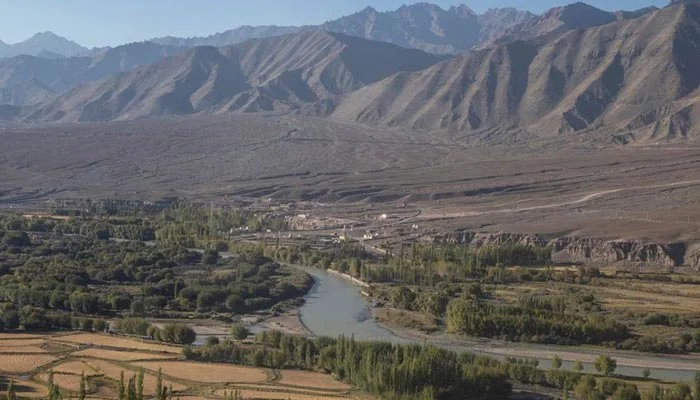Tariq Mahmood Awan
Pakistan’s geographical and cultural landscape is not a modern creation but an ancient continuum of one of humanity’s earliest civilizations — the Indus Valley Civilization. The land that now forms Pakistan has for millennia been home to great centers of civilization such as Gandhara, Harappa, Mohenjo-Daro, Taxila, and Makran. From the mountains of Swat and Balakh to the plains of Punjab and Sindh, a distinct historical unity emerges — a unity woven around the River Indus and its tributaries. This is the land where early human settlements evolved into sophisticated urban centers, where religion, philosophy, and governance took their formative shape.
Follow republicpolicy.com
Calling Pakistan “Indus Land” is not a romantic exaggeration but a statement of historical reality. The Indus Basin, stretching from the Himalayas to the Arabian Sea, gave birth to ideas and institutions that continue to influence societies across South and Central Asia. Agriculture, irrigation, civic organization, and architectural planning — all hallmarks of the Indus people — represent the deep roots of continuity that define the region’s identity even today.
Follow Republic Policy on YouTube
Modern Pakistan, seen through this lens, is not merely a postcolonial state created in 1947. It stands upon the soil of a civilization that flourished five thousand years ago — a civilization that developed social systems, religious thought, and political order long before many others in the world. Recognizing this connection transforms the idea of Pakistan from a state born out of political partition into a civilization reborn with renewed consciousness.
Follow Republic Policy on X
The Indus identity gives Pakistan both depth and dignity. It shows that our national story did not begin in 1947; it began when the earliest settlers along the Indus River cultivated the land, built cities, and created enduring social systems. Islam, which later became the unifying spiritual force of this land, did not replace that civilizational essence — it evolved within it. The synthesis of faith and civilization created a unique cultural character — Islamic in spirit yet deeply rooted in the soil of the Indus.
Follow Republic Policy on Facebook
Reintroducing this civilizational awareness into Pakistan’s national consciousness could profoundly strengthen its unity and global image. Our textbooks, public discourse, and cultural institutions should reflect this broader identity — one that connects Lahore, Peshawar, and Karachi not just through politics but through shared heritage. Understanding Pakistan as “Indus Land” allows us to transcend colonial narratives and rediscover our own historical agency. Instead of being seen as a state carved out of India, Pakistan becomes the inheritor of an ancient civilization that predates modern political boundaries.
Follow Republic Policy on TikTok
This perspective also reshapes how we define national pride. Too often, our history begins with conquest and conflict. The Indus narrative, however, emphasizes creation — of art, architecture, philosophy, and governance. It invites us to celebrate human achievement, not merely political survival. Nations that connect with their deep civilizational roots — such as Egypt, China, and Iran — command respect on the world stage because they present themselves as historical continuities, not modern accidents. Pakistan can and should do the same.
Follow Republic Policy on Instagram
To embrace the Indus heritage is to embrace inclusivity. It recognizes the contributions of multiple ethnicities, languages, and regions that share the same civilizational bloodstream — from Baloch fishermen to Punjabi farmers, from Sindhi artisans to Pashtun traders. The Indus identity is not tribal or sectarian; it is a bridge between diversity and unity. It is this inclusive consciousness that can counter polarization and reinforce the idea of Pakistan as a plural, progressive nation.
Follow Republic Policy on WhatsApp Channel
In essence, Pakistan as “Indus Land” represents a fusion of geography, faith, and culture. It reminds us that our roots are deeper than politics, that our soil has witnessed empires rise and fall, but the spirit of civilization has endured. If the state incorporates this understanding into education, governance, and diplomacy, Pakistan can project itself globally not merely as a developing nation but as a civilizational state — rich in history, culture, and continuity.
Such a reawakening of civilizational consciousness could redefine patriotism itself — from one tied only to political ideology, to one grounded in thousands of years of shared human creativity. Pakistan’s rebirth as “Indus Land” is not just a journey into the past; it is a blueprint for reclaiming its rightful place among the world’s great cultural civilizations.
















